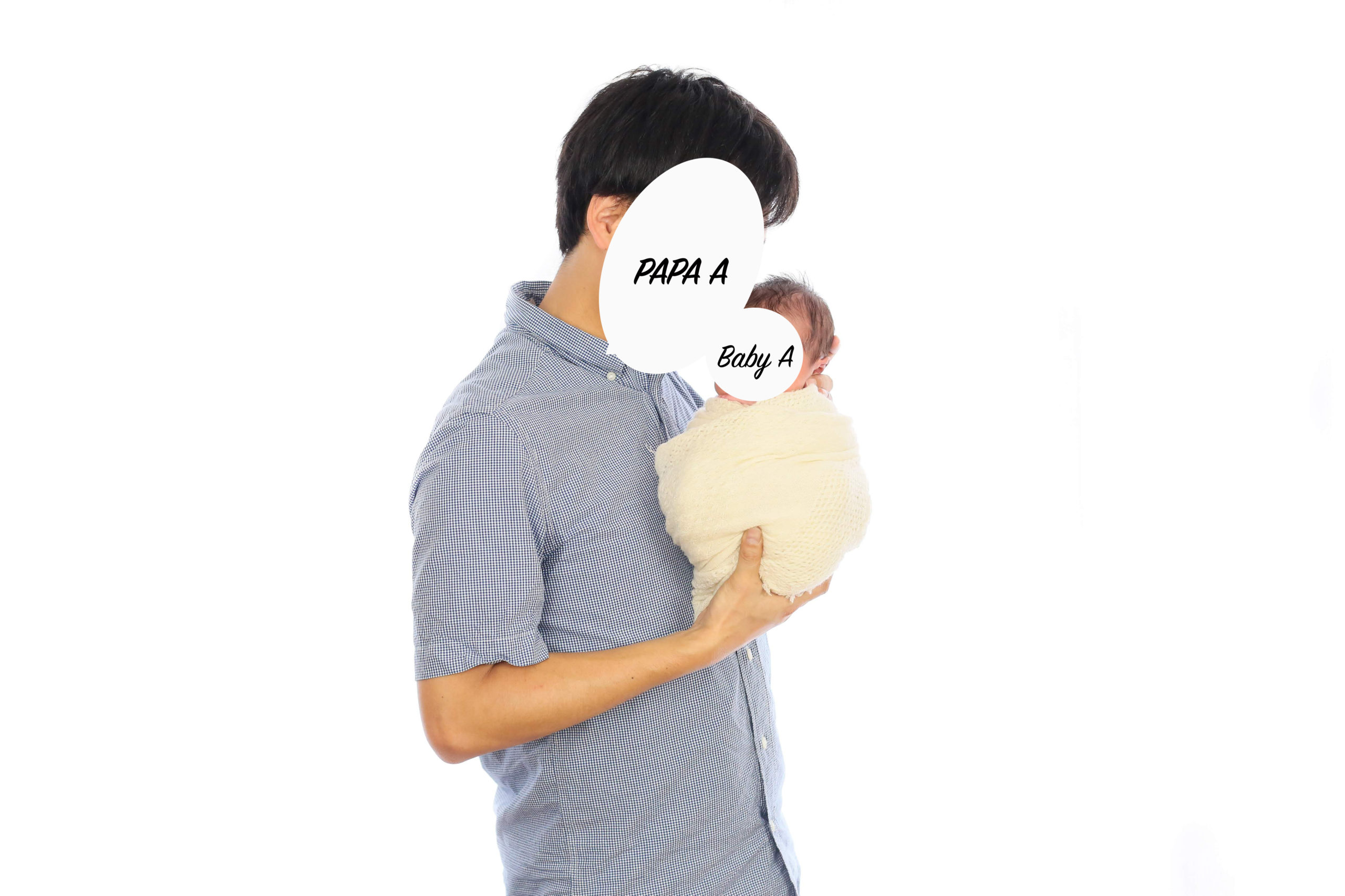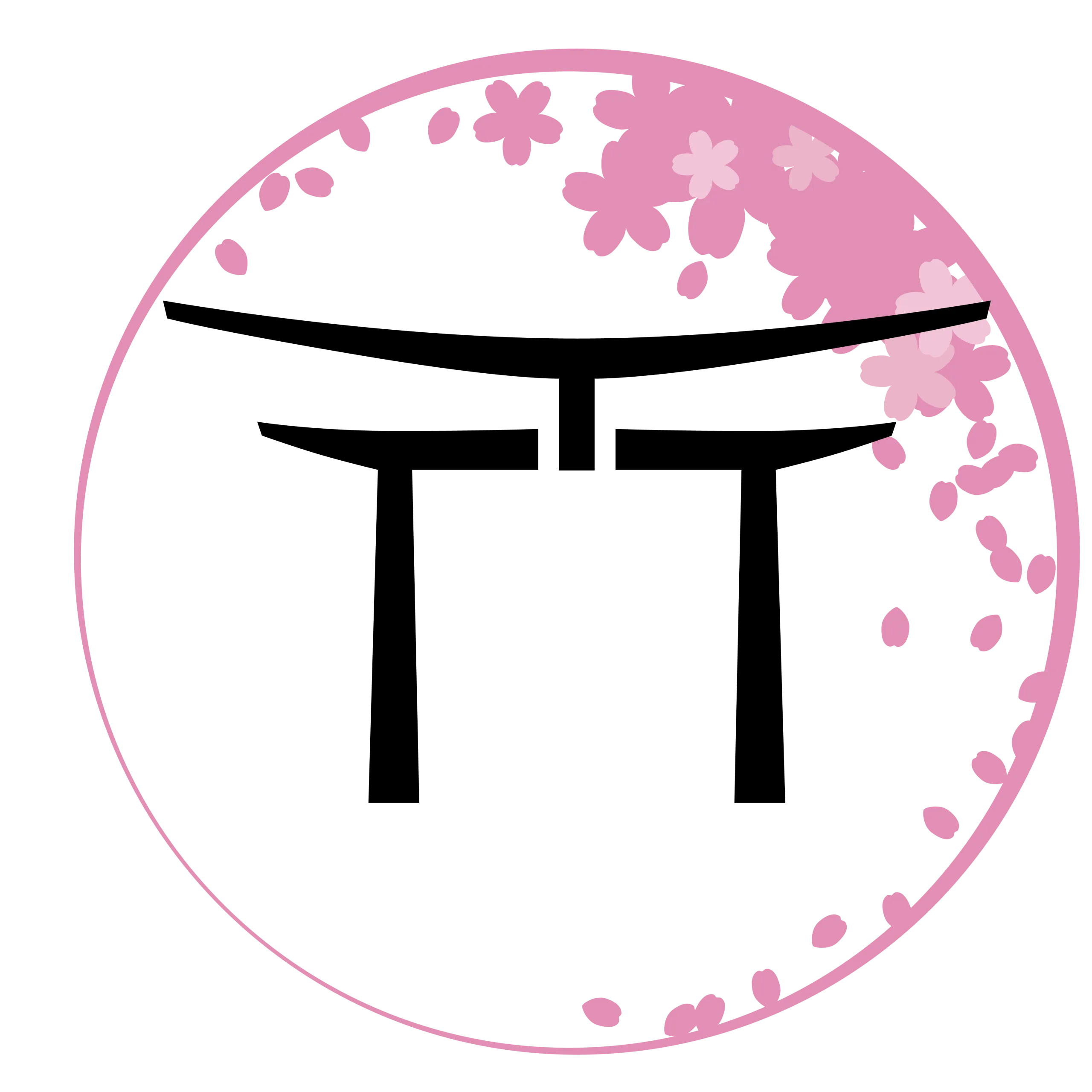Fatherhood in Japan: Papa A’s Story

Last Updated on May 1, 2024 by Kay
This post may contain affiliate links, meaning I may earn a small commission on any purchases through those links at zero additional cost to you. Whatever I make goes to keeping this website running and I am forever grateful for the support. See my Privacy Policy for more information.
Over the years fathers around the world have become increasingly more involved with their children’s lives, starting from before they are even born. A study has even shown that fathers experience similar increases in oxytocin, a hormone associated with bonding, as mothers when interacting with their child. Considering this, I thought it would be interesting and hopefully helpful for parents and soon-to-be parents to hear about the experience of a new father in Japan — my husband.
Papa A is in his early thirties and works for a global company in Tokyo. He lived in Canada with me for a year when we were dating many years ago but hadn’t studied nor lived abroad until then.
He is originally from a small city in Hiroshima Prefecture and has an older brother and a twin brother. His mother is a homemaker due to her health, which requires her to get dialysis three times a week. His father, now retired, used to own a company and because of this was rarely at home when my husband was growing up. (In fact, he was on a business trip when my husband and his brother were born, despite that it was a scheduled C-section they had known about for several days.)
This interview with Papa A is in both English and Japanese. If you’re interested in the Japanese version, click here.
Hi Husband, thank you for allowing me to interview you! Can you tell everyone a bit about yourself?
Hi everyone, I’m Kay’s husband, A. Thank you for checking out her blog! Kay and I have been married for almost 6 years.
I hope that people reading this interview will find it helpful.
Do you still remember when I told you I was pregnant with Baby A? How did you feel?
Of course I remember! I was sleeping and you woke me up suddenly and showed me a positive pregnancy test. It was still early and I was sleepy so I wasn’t sure if it was a dream or reality. But after a little bit of time, it hit me that this was real and I was really happy.
Did you worry about me being pregnant and giving birth in Japan? What did you worry about the most?
Of course I was worried. As there are a lot of doctors and nurses in Japan who can’t speak English, I was especially concerned about communication. Also, although you’re good at Japanese, you expressed that you didn’t want to speak in Japanese during childbirth.
I actually thought that it would be best for you to give birth in Canada but due to my work and concerns about taking a newborn on a plane for many hours, it was more realistic for you to have the baby in Japan.
You accompanied me to almost every prenatal appointment. Would you recommend other partners do the same and why?
I think it’s a good idea for partners to go if they’re able to. By attending these appointments, they can see how their child is doing and also be supportive as pregnancy can be stressful for women. Furthermore, it’s really exciting to see how much the baby has grown at each checkup. It’s incredibly moving to see the baby, who at first looks like a tiny pea, gradually become a human being!
How did you help me out throughout the pregnancy?
The best thing I think I did to help overall was housework. It was hard for you to move in the third trimester as your stomach was quite large, so housework became quite difficult for you to do easily. This is why I thought I should do what I could, even if it was just chores. I also remember massaging your legs and feet every day.
I was quite surprised by how much your legs and feet had swollen as you neared your due date — an indentation would remain on your skin whenever I pressed down on your ankles! I would give you a massage for about 5 to 10 minutes every day and I think it made things easier for you.
What are your thoughts after seeing me go through 10 months of pregnancy?
“I would never be able to go through that!”
I think that pregnancy is truly difficult physically and emotionally. There is considerable pressure on women to ensure that they protect and nourish the new life within them. On top of that, the emotional ups and downs due to hormones are shocking. Seeing you go through pregnancy made me think that women are stronger and more amazing than men.
What was your favorite memory of the pregnancy?
There’s a lot but, of course, it has to be when I heard our baby’s heartbeat for the first time. I remember feeling so happy. Up until then it was hard for me to believe that our baby was inside of you, even when the doctor confirmed it, so when I heard that heartbeat, I remember feeling so moved and thinking, “Ah, this is our child.”
What do you think of the clinic we ended up choosing? Do you think they treated me any differently from Japanese women?
I think it was quite a good clinic among the ones near our house. The doctors could speak English and there were female doctors. The clinic also seemed like it could support foreign women as they had a lot of foreign patients.
I don’t think they treated you any differently from Japanese women. However, I think it may have been because you had a Japanese husband (me) who accompanied you to every appointment and complained if something was wrong. If you had gone to appointments alone, things might have been different.
The day after Baby A’s due date, we were suddenly told that I had to be admitted to a hospital. What was going through your mind?
I remember it was so disappointing and unsettling. We had spent so much time preparing the birth plan for that specific clinic and had a great relationship with the doctor so I really didn’t want to have to switch to a hospital at the very end. On top of that, I didn’t know anything about that hospital, what kind of people the doctors and nurses were, whether you would be able to safely deliver the baby … I was worried about so many things.
You were sitting next to me when I was being induced. Could you describe that experience?
It was incredibly difficult. Men are basically powerless in this situation and I felt I was watching you being tortured. There was discussion about you being induced over the course of a few days so I’m glad it didn’t happen. I don’t think I could’ve handled it.
How did you feel when I had to have a C-section?
Honestly, induction seemed so painful that I remember feeling relieved that you had to have a C-section. I wanted our baby to be born quickly and for you to feel better. I wasn’t worried either as I was also born by C-section.
What was it like when you saw Baby A for the first time?
I remember thinking, “Is this really my baby?” because she was so cute that I didn’t think she was my child. It was the happiest moment of my life. (Sorry if I sounds like I’m boasting, haha!)
What did you think of the doctors and nurses at the hospital?
The doctors were great. There was a young doctor as well as a more experienced one and they both were knowledgeable. There was a nurse who wasn’t the best but there was also an experienced nurse who was wonderful. The hospital was a bit old but it was good overall.
How did you feel those first few days with a newborn?
I don’t really remember because it was overwhelming. I remember being very confused because in the beginning we didn’t know anything, from how to give her milk, to changing a diaper, to how to hold her… But I was happy whenever Baby A was brought to our room in the hospital.
You took six weeks of paternity leave. Do you think it was worth it? Why?
I am definitely glad that I took paternity leave. Of course it was wonderful to be able to dedicate time to support you since you were tired but it was especially great to spend a lot of time with Baby A.
Newborns grow and change every day, and I liked being able to see this alongside you. I believe I would have missed many important moments if I had gone back to work right away.
Even if it’s difficult, I think husbands should take paternity leave. I think they will feel regret if they don’t support their partner after she endured so much after giving birth.
The other day you mentioned how your friend wants to take paternity leave when his second child is born but due to his client-facing job, it’s difficult. Do you have any advice for fathers who may be pressured to not take paternity leave?
I think it’s most important to look for a job at a company where it’s easy to take time off. I work at a global company so it’s quite normal for men to take time off before and after their child is born.
If a father-to-be is employed at a company where it’s difficult to do this, I would suggest talking to his boss and team members as soon as possible, for example right after the first trimester, about taking leave. I think it’ll be difficult for anyone to say it’s a problem if you tell them half a year in advance.
Of course, it’s also important to make sure you’re not leaving anything hanging so you don’t inconvenience your coworkers when you take leave.
A 2020 survey found that about 30% of fathers in Japan who took paternity leave only did two hours or less of childcare or housework. What do you think of that?
It’s unbelievable! What’s the point of taking paternity leave if they’re not going to help with childcare or housework? If they’re not going to help out then I think they should work full-time to earn money, do whatever housework they can do and take care of their child. If they’re only helping out at home for two hours, then I believe they shouldn’t take paternity leave at all.
What do you think about パパでも (“Even Dad (can do/use it)”) ads?
It’s unfortunate that these advertisements are quite common in magazines but I believe that the number of men involved in childcare in Japan is still small. I hope the idea that men don’t help with childcare dies out sooner than later.
Do you think Japan is changing in terms of men helping with childcare and housework?
I do believe that the situation is gradually improving. A while back I was chatting with my parents and my father said that he had never changed any of his children’s diapers! I think now there are more men than before who are more actively involved in taking care of their children.
However, there is no doubt that men need to be more positive regarding childcare. I don’t want to sound arrogant but childcare is not something a man simply lends a hand with — men and women should be taking care of their child together, equally. What’s important is having the desire to help to begin with.
How have the last 8 months been like with Baby A?
I think this has been the happiest time of my life. A lot of things are tough and I can’t sleep at night but my baby is adorable and this experience truly can’t be compared to any other.
What is your favorite memory with Baby A so far?
Baby A recognizes my face and whenever she smiles when she sees me, I feel so incredibly happy! (Sorry, I’m being ridiculous again)
What is the best baby product you’ve used so far?
There’s a lot but definitely the Jumperoo. Before we bought it, we weren’t able to eat dinner together but once we started using it, Baby A could play by herself while we ate and I remember thinking it was such a relief. Baby A is also really cute when she plays in it.
What has been the most difficult part of being a new father?
It’s definitely mentally stressful. Newborns are very fragile and as this is our first child, I’ve been constantly worried about Baby A, like if she is developing properly or whether she will get sick, ever since she was born. I think I’ll be worrying about her until the day I die!
What is something you’re looking forward to doing with Baby A?
There’s a lot but I’m really looking forward to talking with Baby A. She’ll be talkative if she’s like me so I’m excited about the kinds of conversations we will have together.
Are you worried at all about raising a half-Japanese child in Japan? How about a daughter?
Yeah, I’m worried. The number of half-Japanese children is increasing in Japan but there’s still discrimination and bullying. Furthermore, when looking from the outside, Japan has quite a unique culture so I’m also unsure about whether raising her to be completely Japanese is good or not.
In regards to raising a daughter, gender inequality still exists in Japan so I’m concerned about possible difficulties she will face as an adult. I’m also quite worried about her dating some weird guy.
Are you worried about me as a foreign mother in Japan?
I worry about that a lot, more than I worry about Baby A.
You can speak Japanese fairly well but I think it will be difficult to communicate with Japanese moms and teachers and as a Canadian, it’ll be very stressful to adapt to the culture.
What advice would you give to a new father?
If the baby hasn’t been born yet, I would suggest that he spends some time with his wife, just the two of them because their lives will revolve around the baby after they’re born. Giving birth is also more physically and mentally draining for a mother than a man may expect so it’s essential that he supports his wife and child if he is able to take time off around the time his child is born.
A lot of things will be difficult but it’s truly a joy to see your cute child grow up, so I hope that new fathers are able to do their best while having fun.

